Persistently implementing the motto "people are the root", many localities have proactive and practical ways to implement the direct democracy mechanism at the grassroots level. People supervise the Party's work from the grassroots level, which is the place where all policies and guidelines of the Party and the State are directly implemented, and at the same time, it is also the place where people's mastery needs to be exercised most directly and widely.
The Party is subject to the supervision of the people, which is first and foremost reflected in the Party's guidelines and policies, which originate from the legitimate and legal interests and aspirations of the people. Promoting the people's mastery from the grassroots is an important part of raising awareness of democracy and the capacity to practice democracy, and is an important and key step in building a socialist rule-of-law state of the people, by the people, and for the people.
The content and form of implementing people's democratic rights at the grassroots level are increasingly specified and when implemented, have had positive and direct impacts on all areas of social life, unleashing the creative power of the people.
Widely deployed, put into practice
On December 18, 1998, the 8th Politburo issued Directive No. 30-CT/TW on building and implementing the Grassroots Democracy Charter. Assessing the actual situation at that time, Directive No. 30-CT/TW frankly pointed out that: “The people's right to mastery is still being violated in many places and in many fields; bureaucracy, commandism, authoritarianism, corruption, harassment, and causing trouble to the people are still widespread and serious, and we have not been able to push back or prevent it.”
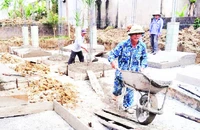
The Party is under the supervision of the people - Firm roots, strong trees, all things are successful
This is a correct policy, in line with the people's wishes, originating from practical demands, so it has been quickly and widely implemented, step by step firmly and truly put into practice. The Party's policies and guidelines, the State's policies and laws on grassroots democracy have been built, supplemented and perfected in accordance with the conditions, development level and requirements of the country.
The results of the actual survey in localities and units confirmed the common points that need to be noted. That is, the development and implementation of the grassroots democracy regulations have contributed to innovating methods, improving the leadership capacity of the Party, management and administration of the State; innovating the content and methods of operation of the Fatherland Front and people's organizations; promoting the pioneering and exemplary role, correcting the working style and manner of cadres and civil servants in the direction of being close to the people, respecting the people and promoting the people's mastery.
Party committees at all levels have included the implementation of the QCDC at the grassroots level in their work programs and plans. Many localities have included the content of the implementation of the QCDC at the grassroots level as a criterion for evaluating emulation; linking the inspection of the implementation of the QCDC at localities and units with the inspection of the work of the heads of the Party committees and authorities. In the period of 2016-2020, 63 Party committees and authorities at all levels of provinces and cities issued nearly ten thousand directive documents (resolutions, directives, projects, plans, instructions, etc.) to implement the QCDC at the grassroots level; organized more than 12 thousand propaganda and training sessions.
Localities such as Ha Giang, Lao Cai, Nghe An, etc. have issued documents on implementing QCDC at the grassroots level in ethnic languages to widely disseminate to the majority of ethnic minorities in the area. Localities have created many models for building and implementing QCDC at the grassroots level, contributing to helping people raise awareness, access information, voluntarily enforce the law and effectively exercise direct democracy. Bac Lieu has a model of "Clan Self-Management Group".
Ben Tre has a movement called “New Rural Sunday”. Long An has a movement called “3 closeness - close to people, close to work and close to the area”. Lam Dong has a “Law Club” in residential areas. The Vietnam Farmers’ Association has a model called “Farmers Club with Law”. Binh Thuan has issued guidelines for scoring the implementation of QCDC in various forms. Bac Giang has built a software called “QCDC Information Management System”…
The birth of the Law on Implementing Democracy at the Grassroots Level, passed by the 15th National Assembly on November 10, 2022, consisting of 6 chapters and 91 articles, has established an important political and legal foundation for the Party and State to continue to improve guidelines, policies and laws on democracy in general and democracy at the grassroots level in particular, thereby contributing to perfecting democratic institutions. Actual results in localities show that the implementation of laws on democracy in all fields taking place at the grassroots level helps the law truly come into life, people take charge of their own state management and social management, while contributing to monitoring and reflecting the quality, scientific nature, feasibility and closeness to the people of the guidelines, policies and laws of the Party and State.
Ba Don Ward (Ba Don Town) is the economic and commercial center of the north of Quang Binh Province, bustling and vibrant for many decades. National Highway 12A runs through the town center but has no sidewalks, and the roads in the neighborhoods are small and winding. When issuing a specialized resolution on building a civilized and model urban area, which includes an important content of street expansion, the Party Committee of Ba Don Ward determined to strictly implement the QCDC, as a basis for mobilizing people to donate land and save costs for site clearance. Secretary of the Party Committee of Ba Don Ward Dinh Thieu Son recalled: The Party Committee organized many meetings with the Party cell, residential groups, front working groups and people to propagate and mobilize; publicly and transparently modeled some roads so that people could clearly see the effectiveness. Every contribution, no matter how small, from the people was recorded on a large board and posted publicly. Big and small matters were brought to the people for discussion and agreement. After more than a year of implementing the "road opening resolution", hundreds of people in the ward voluntarily donated nearly 3,000 square meters of land along with 1.2 kilometers of fences, trees, houses... worth more than 20 billion VND.
There are thousands of stories that can be told about the effectiveness of implementing QCDC at the grassroots level similar to that in Ba Don ward. In 2023, Farmers' Association members nationwide donated 4.6 million square meters of land, contributed more than VND 8,000 billion and more than 2.5 million working days, repaired and poured concrete on more than 598,000 km of rural roads...
Diversified fields and models
Implementing democracy at the grassroots level is both a condition and a requirement to perfect and improve the quality of the political system at the grassroots level. According to the group of reporters, in localities that effectively implement democracy at the grassroots level, most disputes and problems between people and the government are reconciled and resolved satisfactorily at the grassroots level, creating a harmonious and open atmosphere in the community, contributing significantly to maintaining political and social stability.
Communes, wards and towns have basically fully implemented the contents of public disclosure for people to know, discuss, decide and supervise in many forms: posting at the office, organizing meetings of villages, hamlets and residential groups; announcing through the loudspeaker system... People have been able to exercise their right to be the master in discussing and deciding on the work of villages, hamlets and residential groups such as policies and levels of contributions to infrastructure construction... Many localities have implemented QCDC at the grassroots level in conjunction with the new rural construction program with many synchronous and effective solutions.
The supervision activities of the People's Inspectorate and the Community Investment Supervision Board at the grassroots level promote the people's ownership and creativity, affirming that the most effective is in supervising works and projects with the direct participation and contribution of the people, contributing to bringing practical benefits to the communities where the projects are benefited. The localities of Ho Chi Minh City, Quang Ninh, and Nghe An have good and creative ways of doing things; proactively build regulations, programs, plans and assign tasks to each member; hold monthly meetings, synthesize opinions and proposals and send them to the Standing Committee of the Fatherland Front Committee at the commune level.
In Bac Kan, from 2013 to 2023, the People's Inspection Board supervised 2,382 cases, recommending competent authorities to consider and resolve 147 cases; the Community Investment Supervision Board supervised 6,050 cases at 4,823 construction works and investment projects, detecting 286 projects with signs of violations. In Binh Phuoc, from 2018 to present, the People's Inspection Boards of communes, wards and towns have conducted 1,968 supervisions, recommending the recovery of over 300 million VND in violations. The Community Investment Supervision Boards have conducted 2,439 supervisions of 2,282 projects; detected and recommended handling of 612 projects with violations, recovering money and illegal objects worth 259 million VND...
Direct supervision by the people through the implementation of grassroots democracy contributes to promoting administrative reform, strengthening administrative discipline, creating changes in awareness and working style of cadres and civil servants towards being close to the people, respecting the people, listening to people's opinions, and being responsible to the people. Party committees and grassroots authorities expand democracy, publicize administrative procedures, promote the application of information technology, implement the "one-stop" and "one-stop-shop" mechanisms, and the "friendly government, serving the people" model, creating convenience for individuals and organizations, helping businesses and people to monitor the performance of duties of cadres, civil servants and public employees. Many localities have developed a set of People's Satisfaction Indexes for the services of administrative agencies and annually publicize the measurement results.
People directly supervise and control state power through exercising the right to complain, denounce, and petition to competent authorities, or petition through the Vietnam Fatherland Front and socio-political organizations to resolve petitions, letters, complaints, and denunciations. Implementing grassroots democracy encourages Party committees and authorities at all levels to increase dialogue, receive people, mobilize, persuade, limit administrative measures in resolving arising cases, promptly resolve reflections, complaints, and denunciations under their authority.
According to statistics from the Central Committee for Mass Mobilization, in 2023, at the commune, ward and town levels of 39 provinces and cities, nearly 54,500 meetings with people and more than 13,000 dialogues were held by Party secretaries; nearly 109,000 meetings with people and more than 22,000 dialogues by People's Committee chairmen. State administrative agencies at all levels resolved 23,735 cases, accounting for more than 88%, thereby recommending the recovery of VND 59.4 billion and 0.6 hectares of land for the State; returning VND 190.8 billion and 9.1 hectares of land to organizations and individuals; restoring and ensuring the rights of 28 organizations and 1,096 individuals...
Continuing to diversify forms of ensuring people's mastery, in the direction of direct democracy, on February 18, 2019, the 12th Politburo issued Regulation No. 11-QDi/TW on the responsibilities of Party leaders in receiving people, having direct dialogue with people and handling people's reflections and recommendations. According to comrade Phuong Thi Thanh, Standing Deputy Secretary of the Bac Kan Provincial Party Committee, implementing Regulation No. 11-QDi/TW, the Provincial Party Committee issued 2 regulations and 2 provisions on receiving people, having direct dialogue with people and handling people's reflections and recommendations. The Provincial Party Committee periodically includes this content in the key program of internal affairs, anti-corruption and judicial reform; at the same time, focusing on the work of inspecting and supervising the implementation of responsibilities of Party secretaries at lower levels for this work.
From the Party's policy institutionalized into the State's law, the process of implementing QCDC at the grassroots level is a practical lesson drawn from the Party's leadership of the renovation process. Through the reality in localities, many opinions of cadres, party members and people have pointed out a number of current limitations when implementing QCDC at the grassroots level.
While many resources are mobilized, many large programs and projects are being implemented, raising arising issues directly related to the rights and interests of the people, the State's legal system is in the process of being completed, some policies are not unified, leading to different applications between localities and units, causing questions among the people. In some places, in some cases, the implementation of QCDC at the grassroots level is still formal.
The contingent of cadres, especially grassroots cadres, has weak capacity and qualifications, has not resolved promptly, thoroughly, and has not fully absorbed the opinions and legitimate recommendations of the people. The implementation of democracy in some places has not been associated with discipline and law... This reality requires further promoting the active and proactive role of the people through the Vietnam Fatherland Front and socio-political organizations, effectively and substantially implementing the QCDC at the grassroots level as well as social supervision and criticism activities - forms of promoting direct democracy, helping competent agencies to plan and implement policies and laws more effectively, contributing significantly to building the great national unity bloc, realizing the socio-economic development goals of localities and the whole country.
General Secretary Nguyen Phu Trong emphasized: “In the socialist political regime, the relationship between the Party, the State and the people is a relationship between subjects with unified goals and interests; all Party guidelines, policies, laws and activities of the State are for the benefit of the people, taking the happiness of the people as the goal to strive for...”.
Source: https://nhandan.vn/dang-chiu-su-giam-sat-cua-nhan-dan-goc-vung-cay-ben-muon-su-deu-nen-post808825.html


![[Photo] Visiting Cu Chi Tunnels - a heroic underground feat](https://vstatic.vietnam.vn/vietnam/resource/IMAGE/2025/4/8/06cb489403514b878768dd7262daba0b)





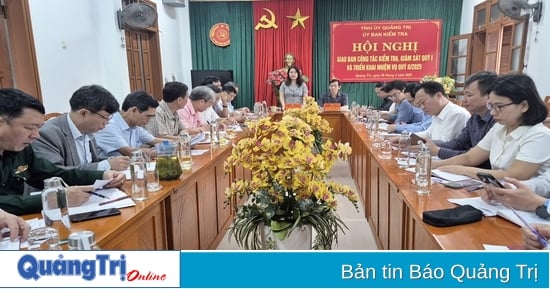






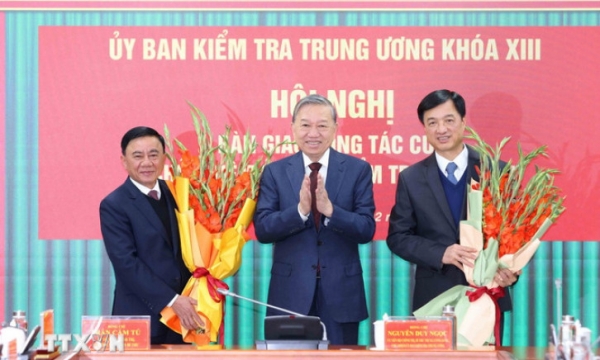
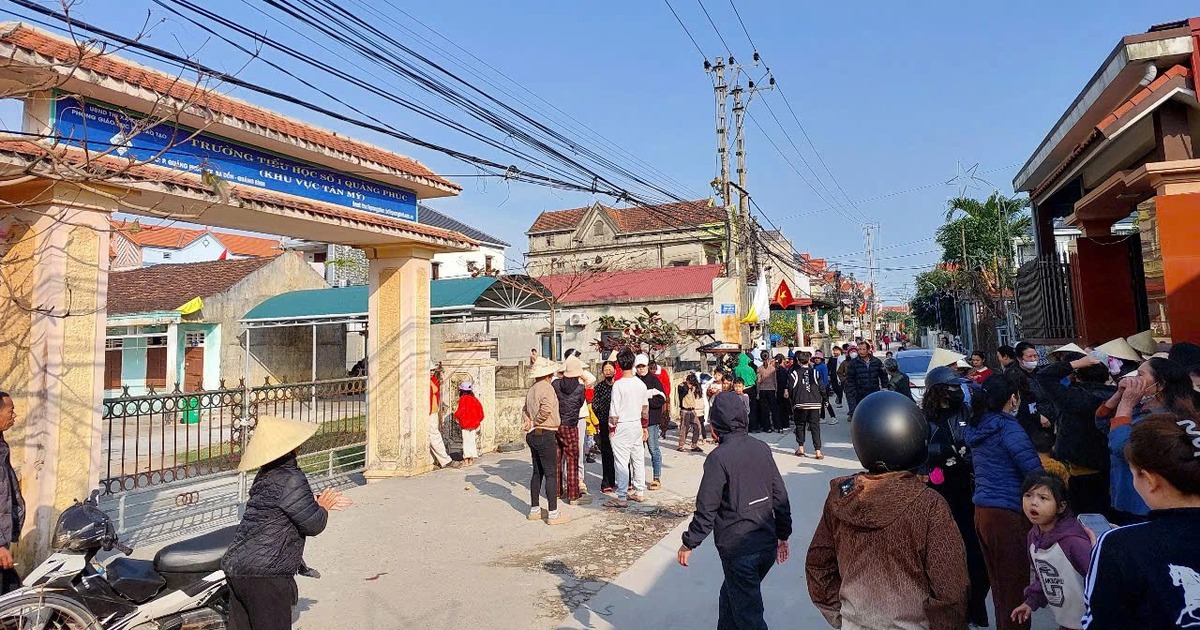
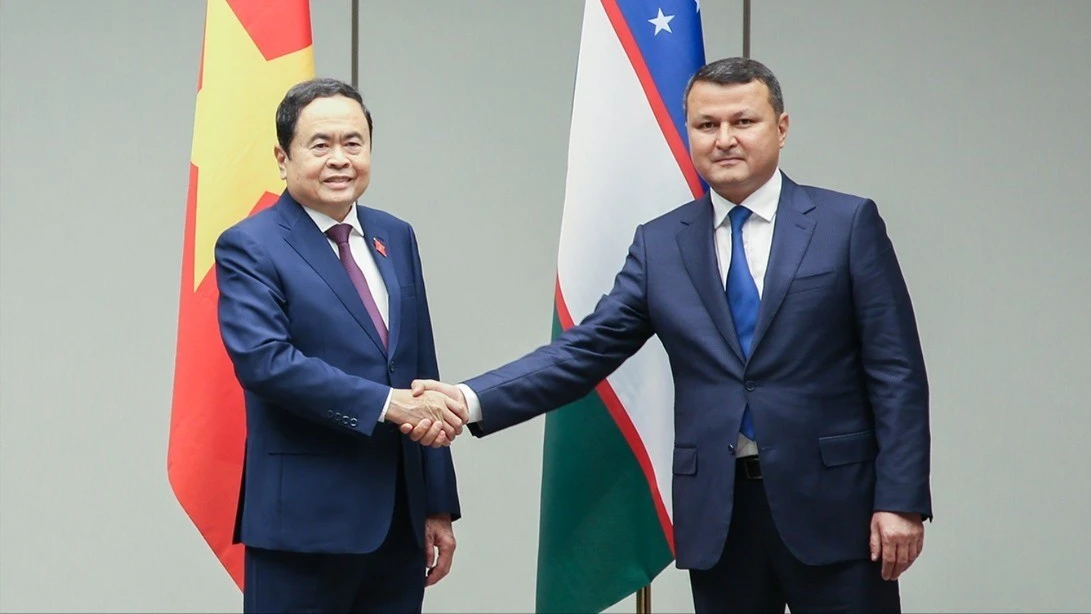
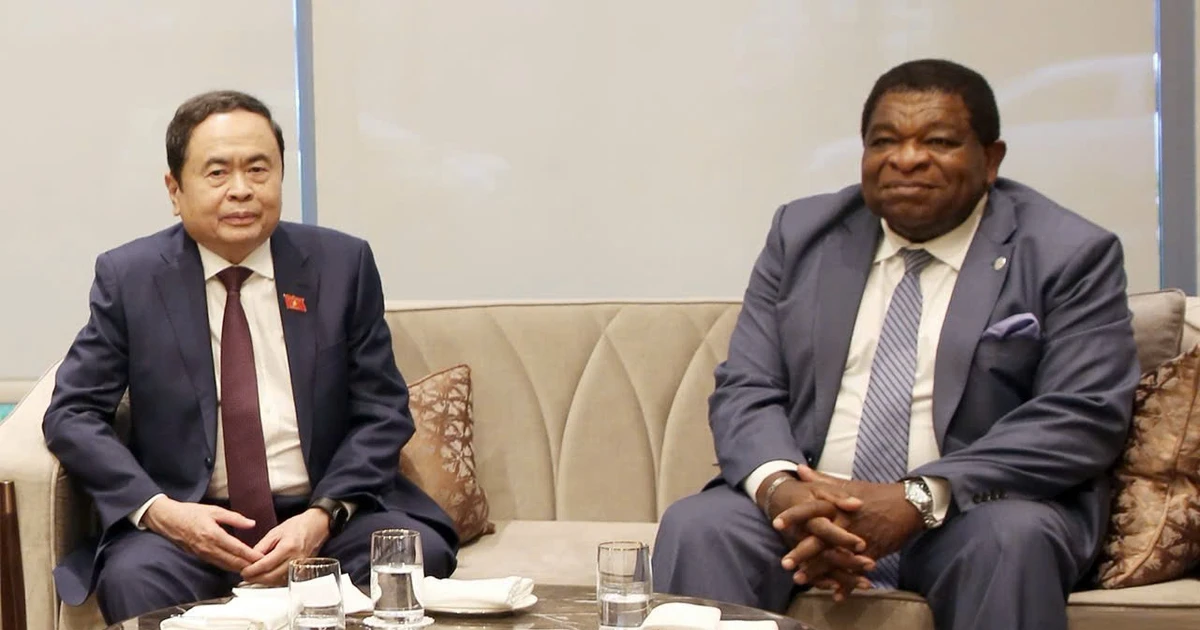
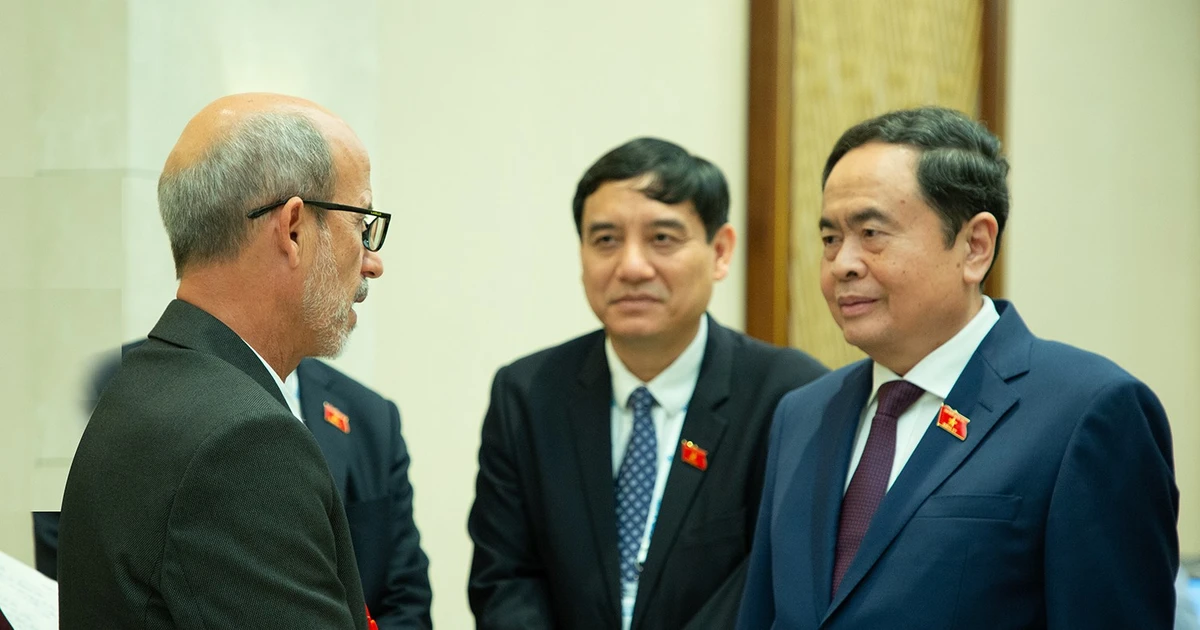
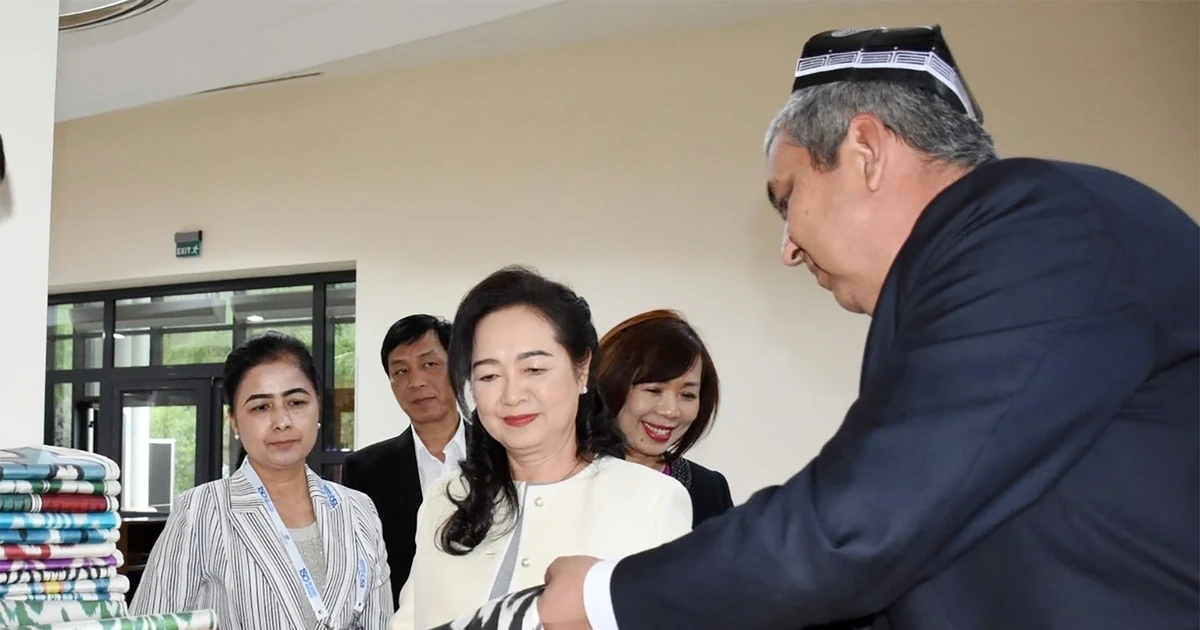
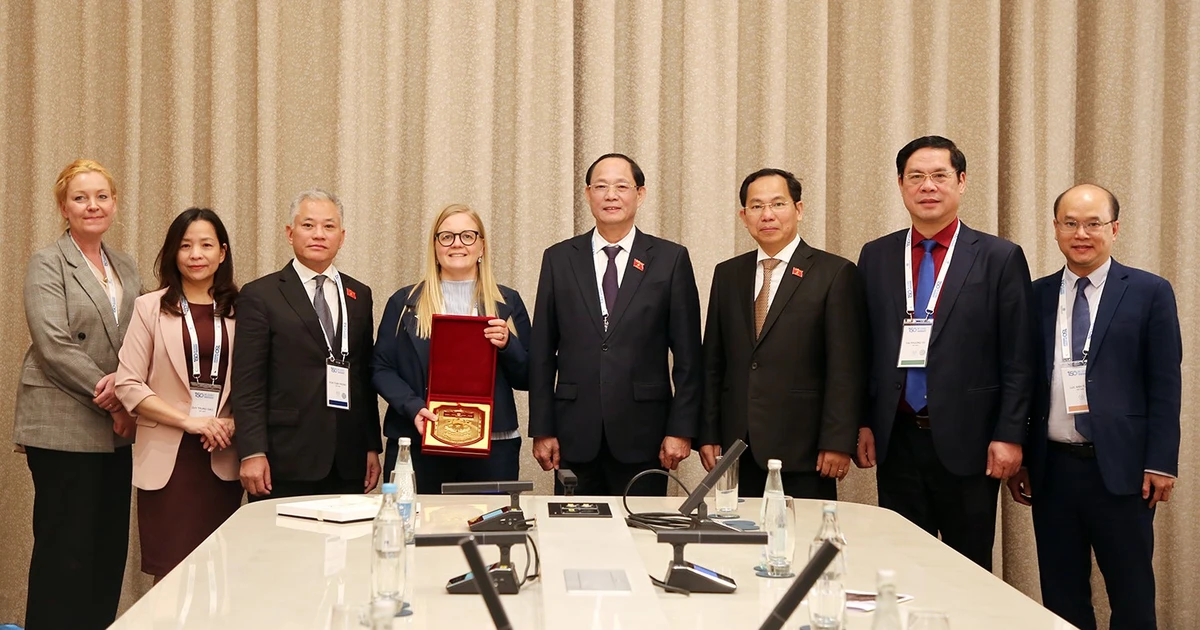
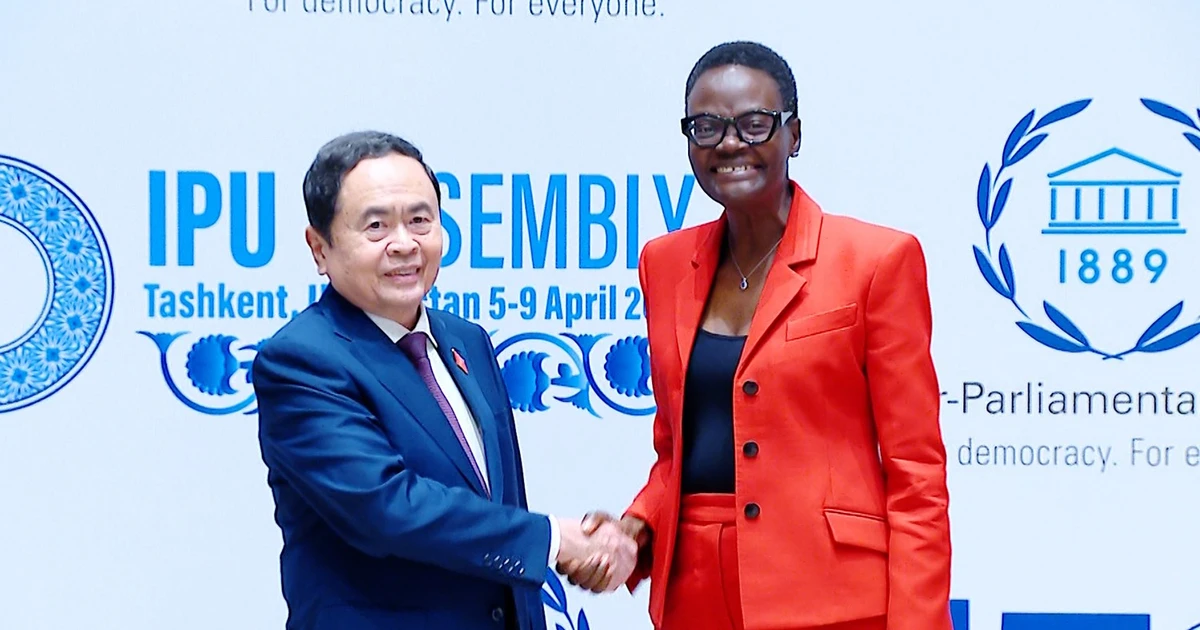



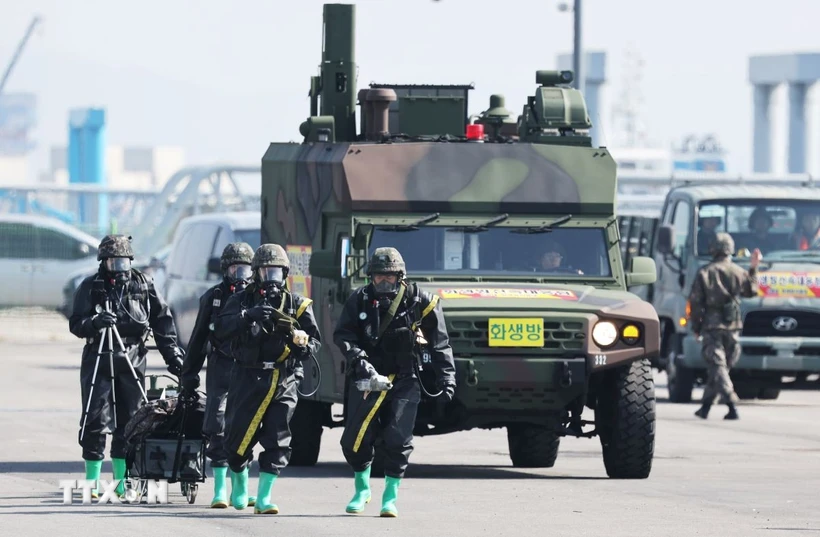
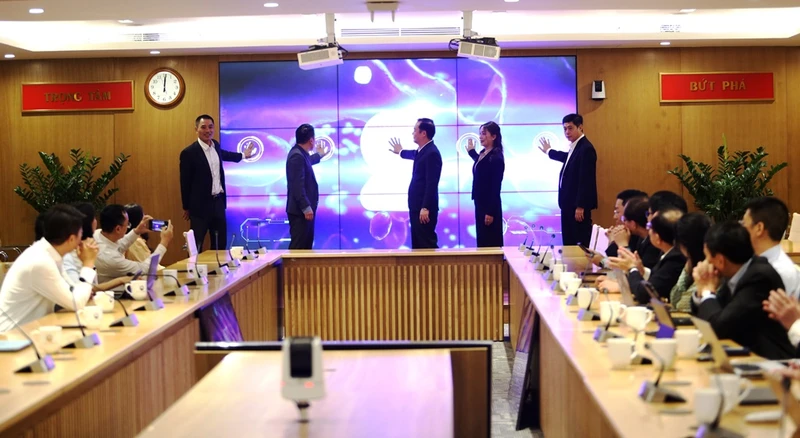
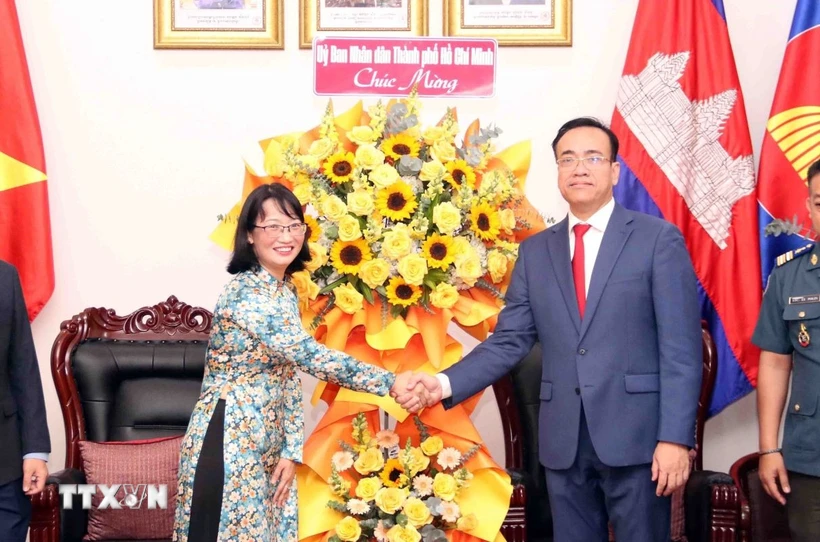

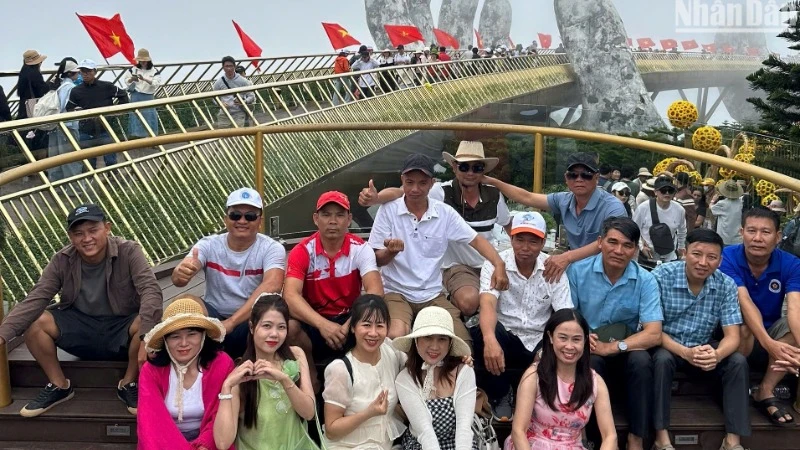
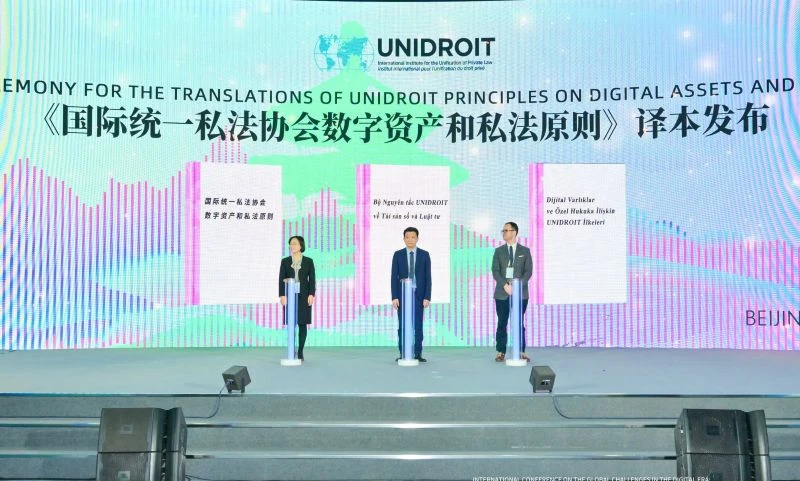








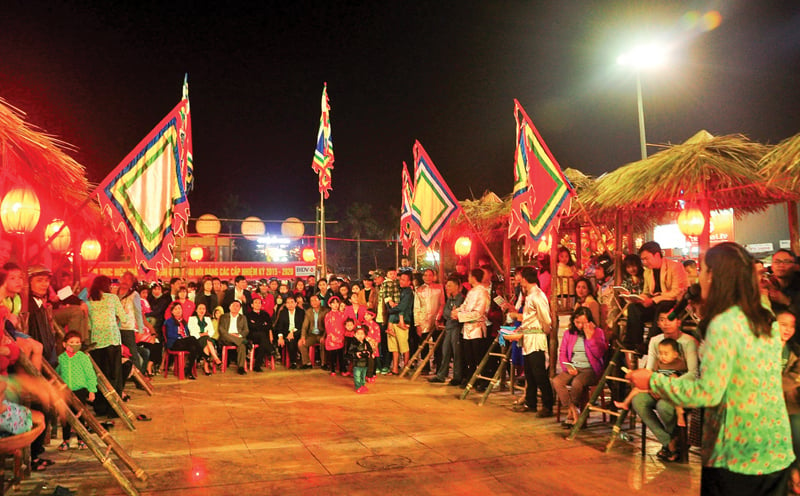

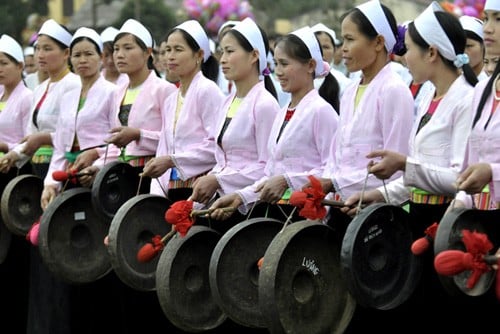























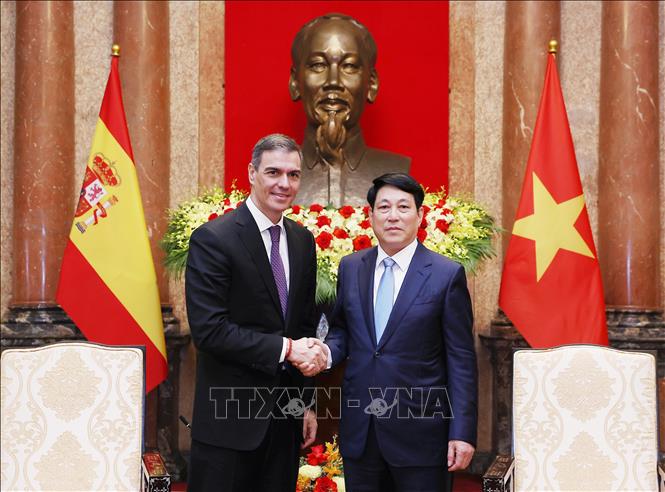








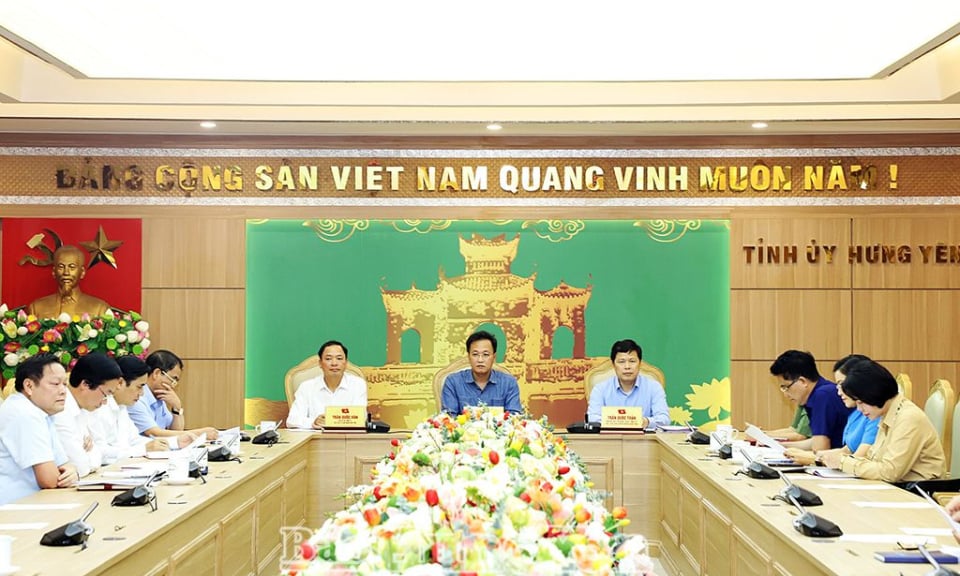
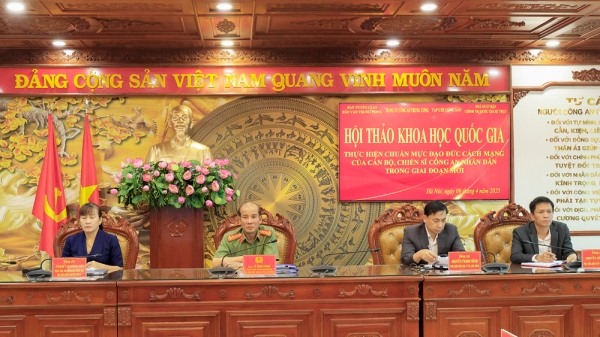
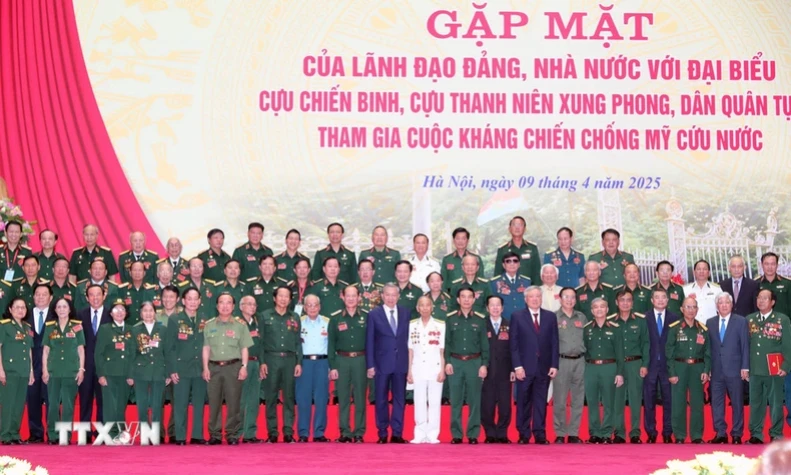
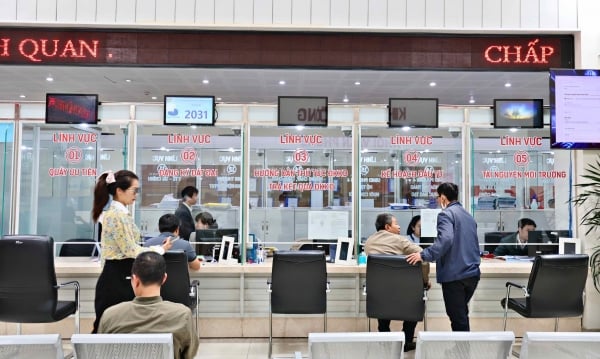
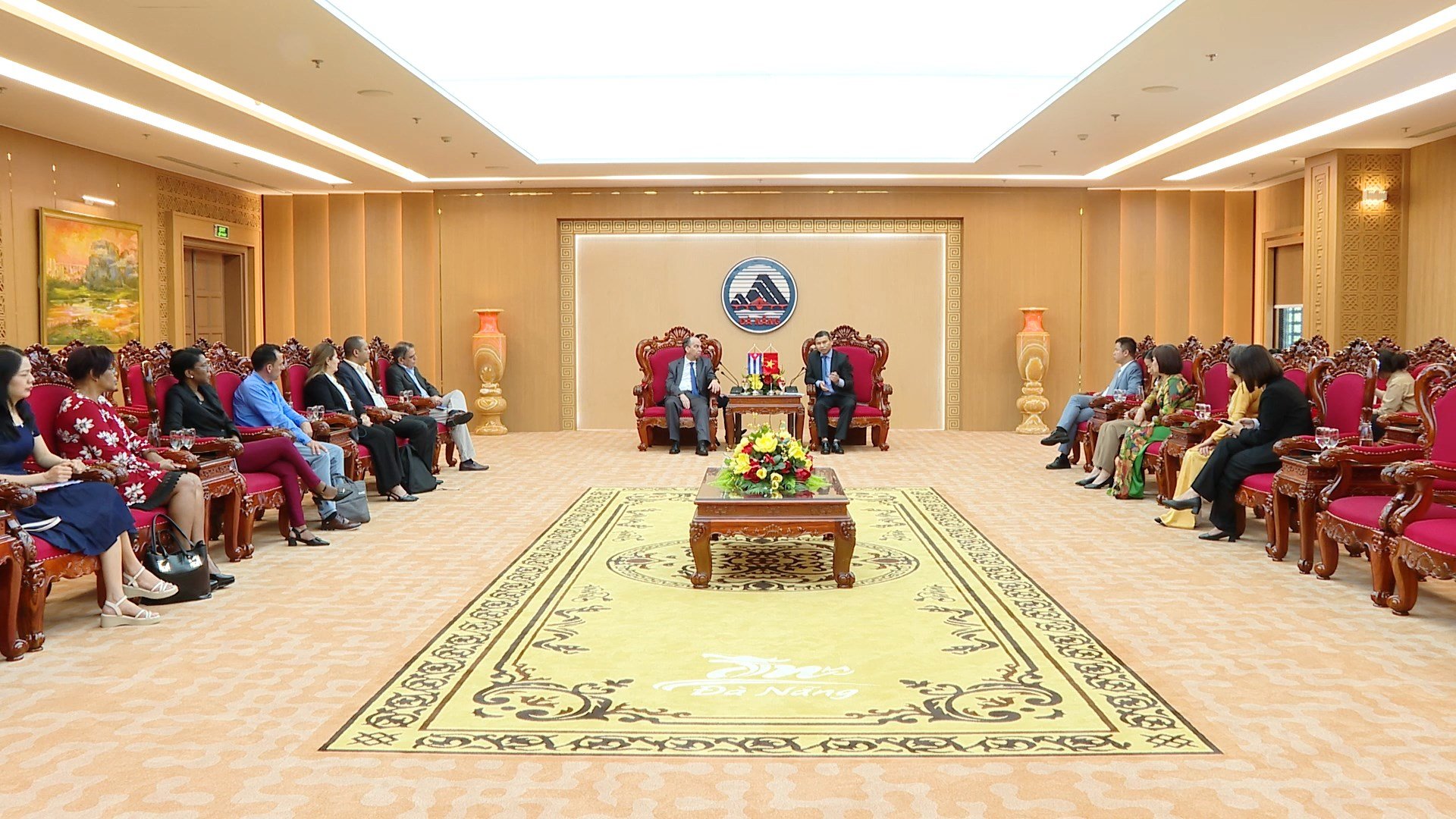











Comment (0)